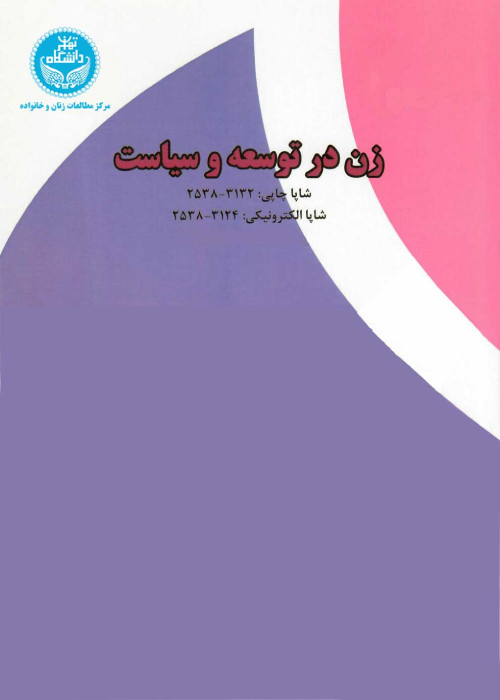Imam Khomeini and the construction of a female identity in the Islamic Revolution
Author(s):
Abstract:
The Islamic Revolution of Iran can be identified as the emergence of a discursive transformation in Iranian society. This revolution, not only was indicative of a discursive and semantic transformation in the context of the Iranian society, but also it was able to create a new sign and a new meaning within the context of global discourses; thus, Foucault also mentioned this revolution as "the soul of a world repulsions." The present study for understanding the characteristics of this discursive evolution, aimed to study its most influential theorist, Imam Khomeini, the founder of the Islamic Revolution. Given the necessity of creating boundaries for the study of discourse analysis, one of the most controversial discourse disciplines, that is, the discursive order of female identity, was chosen for study in this discourse. At the next phase, according to the macro view and the abstract mapping of discursive articulation, using Laclau and Mouffe's approach, this theory and method was chosen for analyzing the discourse of Imam Khomeini's speeches. According to the findings, the central sign of this discourse is "preservation of chastity and religiosity" and despite the conformity of some of the signs of this discourse with hegemonic discourses in the Western world, such as "social activity" and "freedom," all this is defined around "The preservation of chastity and religiosity" in this discourse, and a meaning different from other discourses is created. This discourse, which emerges in the apparent controversy with the second Pahlavis discourse, is also seriously deconstructing its hostile discourse-especially in the case of removing the shame from society- and attempts to marginalize it. Among epistemes that these two conflicting discourses have used to marginalize their rival discourse, are " being foreign", "seeing women as objects", "ignorance", " negligence" and " "approval of prostitution." On the contrary, the well-known fundamental epistemes that these two discourses have used for their hegemony in the Discursive Order of feminine identity include: "belief in progress", "support of freedom", "respect for women", "belief in equality of women and men" and "being civilized".
Keywords:
Language:
Persian
Published:
Women in Development and Politics, Volume:15 Issue: 3, 2017
Pages:
327 to 357
magiran.com/p1745429
دانلود و مطالعه متن این مقاله با یکی از روشهای زیر امکان پذیر است:
اشتراک شخصی
با عضویت و پرداخت آنلاین حق اشتراک یکساله به مبلغ 1,390,000ريال میتوانید 70 عنوان مطلب دانلود کنید!
اشتراک سازمانی
به کتابخانه دانشگاه یا محل کار خود پیشنهاد کنید تا اشتراک سازمانی این پایگاه را برای دسترسی نامحدود همه کاربران به متن مطالب تهیه نمایند!
توجه!
- حق عضویت دریافتی صرف حمایت از نشریات عضو و نگهداری، تکمیل و توسعه مگیران میشود.
- پرداخت حق اشتراک و دانلود مقالات اجازه بازنشر آن در سایر رسانههای چاپی و دیجیتال را به کاربر نمیدهد.
In order to view content subscription is required
Personal subscription
Subscribe magiran.com for 70 € euros via PayPal and download 70 articles during a year.
Organization subscription
Please contact us to subscribe your university or library for unlimited access!



